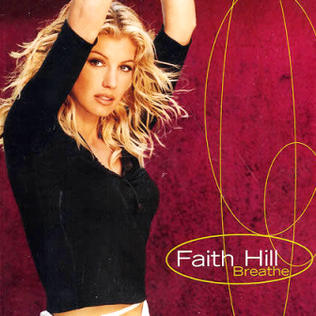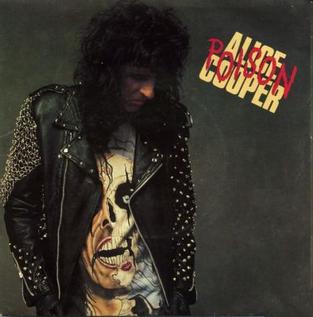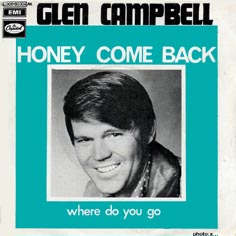Related Research Articles

"Unchained Melody" is a 1955 song with music by Alex North and lyrics by Hy Zaret. North wrote the music as a theme for the little-known prison film Unchained, hence the song title. Todd Duncan sang the vocals for the film soundtrack. It has since become a standard and one of the most recorded songs of the 20th century, most notably by the Righteous Brothers in July 1965. According to the song's publishing administrator, over 1,500 recordings of "Unchained Melody" have been made by more than 670 artists, in multiple languages.

"Take Me Home, Country Roads", also known simply as "Country Roads", is a song written by Bill Danoff, Taffy Nivert and John Denver about West Virginia. It was released as a single performed by Denver on April 12, 1971, peaking at number two on Billboard's US Hot 100 singles for the week ending August 28, 1971. The song was a success on its initial release and was certified Gold by the RIAA on August 18, 1971, and Platinum on April 10, 2017. The song became one of John Denver's most popular songs. It has continued to sell, with over 1.6 million digital copies sold in the United States.

"Cat's in the Cradle" is a 1974 folk rock song by Harry Chapin from the album Verities & Balderdash. The single topped the US Billboard Hot 100 in December 1974. As Chapin's only number-one song, it became the best known of his work and a staple for folk rock music. Chapin's recording of the song was nominated for the 1975 Grammy Award for Best Male Pop Vocal Performance and was inducted into the Grammy Hall of Fame in 2011.

"Still the One" is a song written by Johanna Hall and John Hall, and recorded by the soft rock group Orleans on their album Waking and Dreaming, released in 1976, which made it to No. 5 on the Billboard Hot 100.

"Achy Breaky Heart" is a song written in 1990 by Don Von Tress. Originally published in a recording by The Marcy Brothers under the title "Don't Tell My Heart" in 1991, it was later recorded by Billy Ray Cyrus and released on his debut album Some Gave All in 1992. The song is Cyrus' debut single and signature song. It became the first single ever to achieve triple Platinum status in Australia and also 1992's best-selling single in the same country. In the United States, it became a crossover hit on pop and country radio, peaking at #4 on the Billboard Hot 100 and topping the Hot Country Songs chart, becoming the first country single to be certified Platinum since "Islands in the Stream" by Kenny Rogers and Dolly Parton in 1983. The single topped in several countries, and after being featured on Top of the Pops in the United Kingdom, peaked at number three on the UK Singles Chart. It was Cyrus' biggest hit single in the U.S. until he was featured on "Old Town Road" by rapper Lil Nas X, which peaked at #1 on the Billboard Hot 100 in 27 years.

"All by Myself" is a song by American singer-songwriter Eric Carmen released in 1975. The verse is based on the second movement of Sergei Rachmaninoff's circa 1900–1901 Piano Concerto No. 2 in C minor, Opus 18. The chorus was taken from the song "Let's Pretend", which Carmen wrote and recorded with the Raspberries in 1972. The slide guitar solo was performed by studio guitarist Hugh McCracken.

"Take a Chance on Me" is a song by the Swedish pop group ABBA, released in January 1978 as the second single from their fifth studio album ABBA: The Album. Agnetha Fältskog and Anni-Frid Lyngstad share the lead vocals. It reached the top ten in both the UK and US. The song was notably covered by the British band Erasure, and was performed by Julie Walters in the film Mamma Mia!.

"Bills, Bills, Bills" is a song by American girl group Destiny's Child from their second studio album The Writing's on the Wall (1999). It was written by Beyoncé Knowles, LeToya Luckett, Kelly Rowland with Kandi Burruss of Xscape and Kevin "She'kspere" Briggs, and produced by the latter.

"Breathe" is a song written by Stephanie Bentley and Holly Lamar and recorded by American country music artist Faith Hill. Warner Bros. Records released it on October 4, 1999, as the first single from Hill's fourth album of the same name (1999). The song was produced by Byron Gallimore and Hill. "Breathe" became Hill's seventh number one on the Hot Country Songs chart in the United States, spending six weeks at number one. It also peaked at number two on the Billboard Hot 100 chart in April 2000. Despite not peaking at number one, it was the number-one pop single of 2000.

"Don't Make Me Over" is a song written by Burt Bacharach and Hal David, originally recorded by Dionne Warwick in August 1962 and released in fall 1962 as her debut single. The song reached number 21 on the US Billboard Hot 100 and number five on the Billboard Hot R&B Singles chart. It was also a top-forty hit in Canada, reaching number 38.

"Tell It Like It Is" is a song written by George Davis and Lee Diamond and originally recorded and released in 1966 by Aaron Neville. In 2010, the song was ranked No. 391 on Rolling Stone magazine's list of The 500 Greatest Songs of All Time.

"Poison" is a song by American musician Alice Cooper. Written by Cooper, producer Desmond Child and guitarist John McCurry, the song was released as a single in July 1989 from Cooper's eighteenth album, Trash. It became one of Cooper's biggest hit singles in the United States, peaking at number seven on the Billboard Hot 100. The power ballad performed even better in the UK by peaking at number two on the UK Singles Chart. "Poison" remains one of Alice Cooper's best known songs. It is ranked by Billboard as the "91st top song of 1989", while Ultimate Classic Rock ranked it as the "7th best Alice Cooper song", commenting "Poison sounds like a typical '80s pop-metal number at times, but Cooper’s intensity brings it to a whole other level." The song's main riff was written by guitarist John McCurry, who two years earlier had used it for the John Waite track "Encircled".
"The Tip of My Fingers," also titled "The Tips of My Fingers," is a song written and originally recorded by American country music singer Bill Anderson. First included on his 1962 album Bill Anderson Sings Country Heart Songs, the song was a Top Ten country single for him in 1960. It was recorded by UK singer Karl Denver in 1966 and also by UK singer Des O'Connor in 1970 reaching number 15 in the UK singles chart.
"This Night Won't Last Forever" is a song written by Bill LaBounty and Roy Freeland, and originally recorded by LaBounty in 1978, whose version of the song was a minor Adult Contemporary and pop hit, reaching number 65 on the Billboard Hot 100.
"Rose Garden" is a song written in 1967 by American singer-songwriter Joe South. It was first recorded by Billy Joe Royal on his 1967 studio album Billy Joe Royal Featuring "Hush". Versions by South himself and Dobie Gray appeared shortly after the original. Gray's version became a minor hit in North America in 1969.

"Do I Love You" is a song co-written and recorded by Paul Anka, from his 1972 eponymous LP. Released as an advance single in late 1971, "Do I Love You" reached number 14 on the Easy Listening Singles charts of both the U.S. and Canada, number 16 on the Canadian Pop chart, and was a modest hit on the U.S. Hot 100 as well. As with the earlier "My Way", it was adapted from a French-language song popularized by Claude François, and Anka composed the English lyrics.

"Can't You See" is a song written by Toy Caldwell of The Marshall Tucker Band. The song was originally recorded by the band on their 1973 debut album, The Marshall Tucker Band, and released as the album's first single. It was re-released in 1977 and peaked at number 75 on the Billboard Hot 100. Cover versions of "Can't You See" have charted for Waylon Jennings and the Zac Brown Band with Kid Rock (2010).

"Honey Come Back" is a song written by Jimmy Webb, and recorded by the American country music artist Glen Campbell. It was released in January 1970 as the second single from his album Try a Little Kindness. The song peaked at number 2 on the Billboard Hot Country Singles chart. It also reached number 1 on the RPM Country Tracks chart in Canada.

"Dreams of the Everyday Housewife" is a song written by Chris Gantry and recorded by American country music artist Glen Campbell. It was released in July 1968 as the first single from his album Wichita Lineman. The song peaked at number 3 on the Billboard Hot Country Singles chart. It also reached number 1 on the RPM Country Tracks chart in Canada.

The singles discography of American country singer-songwriter Bill Anderson contains 84 singles, three promotional singles, 6 other charted songs and four music videos. After signing to Decca Records in 1958, Anderson released a series of early singles that became hits, reaching the top ten and 20. This included "That's What It's Like to Be Lonesome" (1958), "The Tip of My Fingers" (1960) and "Po' Folks" (1961). The following year, he reached number one on the Billboard Country and Western Sides chart with "Mama Sang a Song." In 1963, Anderson released his most commercially successful single, "Still." The song was his second number one country single and his first top ten hit on the Billboard Hot 100, climbing to number eight. His follow-up single, "8×10" reached similar crossover success. Anderson released 11 more top ten country hits during the rest of the decade. This included the number one singles "I Get the Fever" (1966) and "My Life " (1969). He also had a number one hit with Jan Howard called "For Loving You" in 1968. Anderson also had top ten hits with "I Love You Drops" (1965), "Happy State of Mind" (1968) and a cover of "But You Know I Love You" (1969).
References
- ↑ "www.classic-country-song-lyrics.com". www.classic-country-song-lyrics.com. Retrieved January 13, 2021.
- ↑ "Bill Anderson singles". Allmusic . Retrieved March 15, 2011.
- ↑ "RPM Country Singles for July 1, 1978". RPM . Retrieved March 15, 2011.
- ↑ "Bill Anderson Chart History (Hot 100)". Billboard. Retrieved August 1, 2021.
- ↑ "Bill Anderson Chart History (Hot Country Songs)". Billboard. Retrieved August 1, 2021.
- ↑ "Hot Country Songs – Year-End 1978". Billboard. Retrieved August 1, 2021.